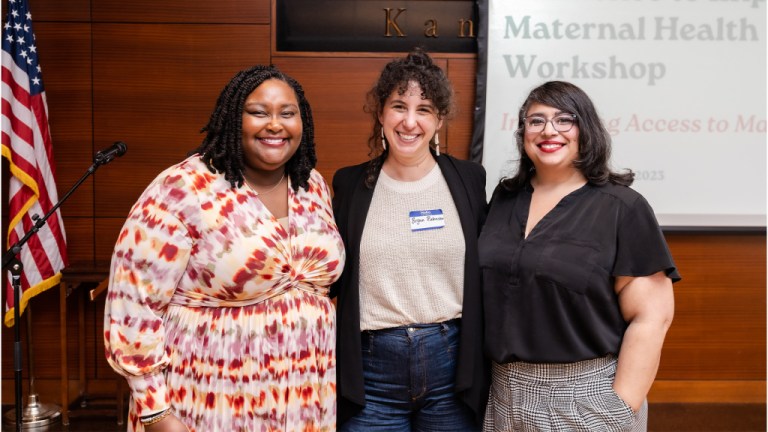Partnering with communities to improve maternal health
A focus on birth equity in the United States
August 15, 2024

Severe maternal morbidity and mortality are on the rise in the United States, and disparities in access, treatment and resources continue to widen in high-risk communities. Indigenous women and Black women die during childbirth at roughly double and triple the rate of white women, respectively.*
In recent years, there’s been a growing call for birth equity to reduce these disparities. Today, that call has never been louder. And at Organon, we are listening and acting.
We started our journey with a community partner needs assessment in 2022 to understand how Organon could play an impactful role in the maternal health space. In 2023, we built upon those learnings with birth equity efforts focused on strengthening the communities of those most impacted by poor maternal health outcomes. We leveraged our resources — including strategic philanthropy, our network of partners and our purpose — to drive impacts in birth equity and improve maternal health, starting from the ground up, with communities.
Focused giving in partnership with communities
In 2023, we focused our giving on community-centered grantmaking. This approach acknowledges the expertise of lived experiences and shifts resources to community-based organizations (CBOs), enabling them to participate in designing and implementing solutions.
Partners included:
- New Jersey Birth Equity Funding Alliance (NJBEFA): We continued our grant partnership with NJBEFA, whose grantmaking model utilizes the shared expertise of their Community Advisory Board in decision-making. Our investment helped support 16 maternal health organizations in New Jersey and supported NJBEFA efforts to share best practices in the state and beyond.
- Event grant support for Center for Black Maternal Health & Reproductive Justice, March for Moms and the 2023 Birth Justice Philly Summit: These events helped promote dialogue, action and information sharing about innovative programs of CBOs and the role nurses and midwives play in achieving maternal health equity.
Advanced internal strategy
We know that developing a birth equity strategy for Organon requires many voices. That is why we convened a cross-functional internal working group with representatives from across the company to inform this work. With their input, we finalized a theory of change to achieve our vision: eliminating racial inequities in maternal health outcomes in the U.S. by strengthening Black, Indigenous, Hispanic, and Latino communities and ensuring access to high-quality, culturally congruent care. Our strategy focuses on four key tactics:
- Amplifying community voices;
- Strengthening communities;
- Supporting facilities and providers in low-resource settings; and
- Updating measurement to reflect community needs.
These community-focused tactics are woven through all birth equity-related activities at Organon.
Built awareness among employees
To increase awareness and engagement among our employees, Organon’s Black Leaders Network hosted a series of events for Black Maternal Health Week. During these events, employees shared personal stories about their experiences with care inequities and discussed ways to get involved and address these issues.
In addition, our maternal health sales team benefitted from an educational panel on birth equity at their national sales meeting, highlighting the relevance of birth equity in their work.
Aim to invest in and develop maternal health products
Organon remains dedicated to supporting and empowering communities to achieve birth equity across the U.S. To help realize this, we will continue to prioritize the development of products and therapies to help improve maternal health.
* Centers for Disease Control and Prevention (CDC), Maternal mortality rates in the United States, 2021, 2023.
National Center for Biotechnology Information, National Library of Medicine, Severe Maternal Morbidity and Mortality Among Indigenous Women in the United States, 2020